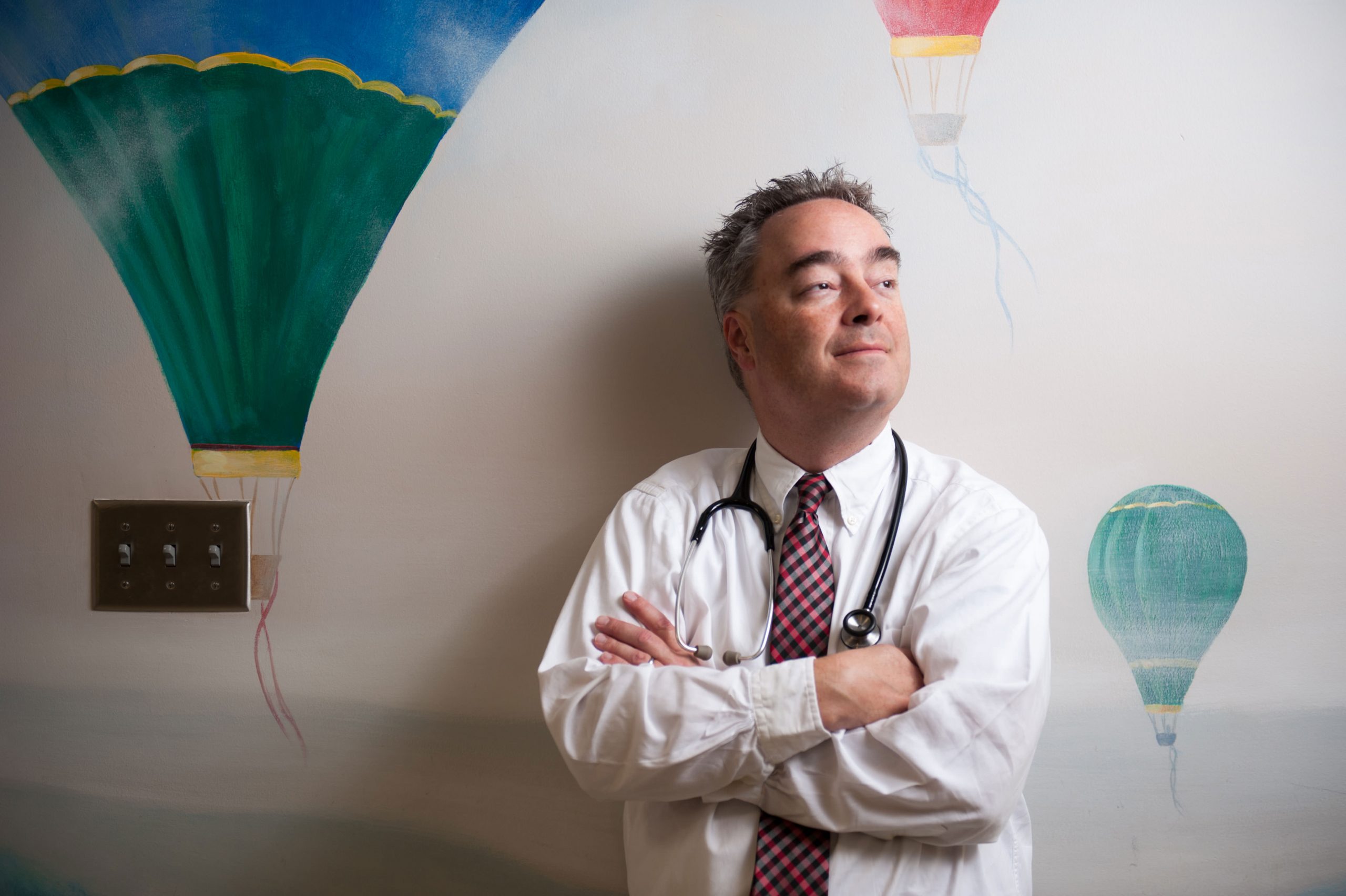By Amelia Neumeister
As a foster parent, Dr. Brian Gannon knows that children and families in foster care can face challenges navigating medical care, paperwork, state agencies, schools and other aspects of case management. He has eight children—six of which were adopted. And four of those adoptions were through foster placements.
Physicians can legally request information on foster children, says Gannon, an assistant professor of Pediatrics at the College of Community Health Sciences and a pediatrician at University Medical Center, which the College operates. So he wanted to streamline the flow of information, help to gather all of a foster child’s relevant information in one place and provide them access to health care and resources. To do that, he started the FRESH Start Clinic at UMC.
FRESH stands for Fostering Resilience through Education, Support and Healthy choices. Since opening its doors in July 2016 at UMC, the FRESH Start Clinic provides care for children in foster care and for families and professionals who support them. The clinic is held on Thursday afternoons.
The goal of the clinic is to advocate for the specialized needs of children in foster care and to change the way children in foster care are obtaining medical care, says Gannon.
He and his team of nurses, a receptionist and social work students wanted to create a clinic for foster children based off the Patient-Centered Medical Home, a model of health care that is patient-centered, accessible, continuous, comprehensive and coordinated, and that focuses on quality and safety.
The clinic works in partnership with the Tuscaloosa County Department of Human Resources, and includes all members of the foster child’s team in health care decisions as appropriate, including the foster parents, birth parents, DHR caseworkers and investigators, noncustodial family members, residential home staff and mental health providers.
“There are different [foster care clinic] models across the country,” says Gannon. “A lot of the larger cities will have foster care clinics that are much more involved than what we are starting right now. We’d like to work into that. The goal would be to have mental health, development and social work all on-site as part of the process, because these kids are known to have more needs than your average pediatric population.”
Gannon had the idea for the FRESH Start Clinic after studying similar clinics in urban areas where foster care is more commonly found, he says. By partnering with UMC, he hopes the clinic can serve as a state-wide model and can bring access to rural areas where foster homes are less common.
Gannon says he drew from his experiences as a both a doctor and a foster parent to help plan the clinic.
“There are so many little things that make it difficult as a foster parent to get the care that the child needs,” he says. “So, my goal was to make all that easier.”
Foster parents can call to set up an appointment in the clinic as soon as the child is placed in their care, Gannon says. They can be seen within a week. At the first visit, the child’s medical, social and psychiatric history will be collected and requests will be submitted for any additional records needed. Gathering this information helps to streamlines the process of medical care for children in the foster system, Gannon says.
Once additional records are obtained, another visit will be scheduled. The clinic will assess the child’s adjustment to his or her foster placement and will look into any behavioral concerns a foster parent might have. A trauma assessment will also be performed to help families address needs of children who have suffered from abuse or neglect.
From there, the FRESH Start Clinic can provide primary care for children in state custody or can serve as a consultant to their chosen doctor. The clinic also stays in touch with DHR and is notified of any changes in the child’s placement or goals.
The FRESH Start Clinic knows how to gather background information and navigate paperwork that many foster parents simply don’t have time for, Gannon says. If the parents are not dealing with paperwork, they will have less difficulty making appointments, he says.
“I’ve gotten a lot of positive feedback from the foster parents that I’ve worked with as well as the caseworkers, because the DHR caseworkers will have dozens of children on their caseload,” Gannon says. “Often they’ve had more negative experiences than foster parents have as far as interacting with doctors’ offices and things being challenging and not running smoothly, and they’ve been very pleased with the efficiency that we’ve been able to provide to them.”
The long-term goal for the clinic is to create an infrastructure to bring the clinic to a wider audience.
“I would love for this to be a model for the state and have interested doctors all over the state who have extra training and special interests,” he says. “And we could have case managers that make sure all these children get what they need. I think over time that would be a really good goal. But we are starting small—starting with one county.”
